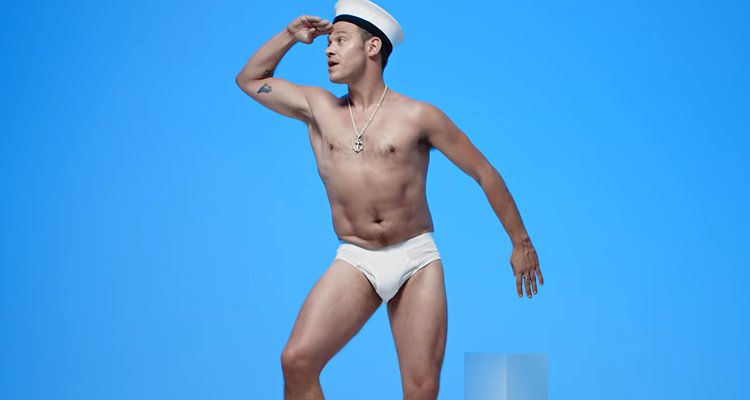University students today live in a world of pres and posts. Culture-changing events come quick and without warning, leaving us in aftermaths where the world before is a ghost. Students born in the late nineties have lived their entire lives in a post-something. Post-Blair, 9/11, and now Brexit (at least, the vote part); our world should also be considered post-Pop Idol, and for good reason.
Pop Idol was significant for the revolution it allowed. A democratised form of television viewing, the show reduced the power of the star-judge figure and redistributed it to the people. As popularity and skill became disentangled, likeability surmounted talent to become a key criteria for securing public attention. New stars were created beyond the controlling hand of a Cowell (ostensibly), allowing an entryway for Music’s unlikely stars. Will Young is one such figure, one who both figuratively and literally overthrew Pop’s autocratic head. The X-factor, Britain’s Got Talent, and The Voice, owe their success to the furore surrounding the format’s inaugural series.
Today, music’s unlikely star is lying on his belly in an unmade bed, legs swirling over his back, a palm propping up his head as he is questioned by a journalist over the phone. In the corner I lounge on a recliner, flicking through copies of Gardener’s World, eyeing an aluminium bath tub, when I notice a real mess in the grouting that connects the bath tiles to the bedroom.
I get up and crouch over the juncture. The bedroom carpet is emerald, gnarled and upturned, revealing a blue-grey concrete. Behind me, the journalist asks Will about the podcast on which he features, Homo Sapiens. He says he doesn’t think he’ll return to the series. He is, he says, just too busy.
I avoid the compulsion to rip up the carpet, and throw the copy of Gardener’s World onto the coffee table. Will’s first interview of the day is coming to an end, meaning mine is sure to begin. He hangs up, and rolls out of bed.
In thick black boots, jogging bottoms, and a Homo Sapiens pullover, he strides toward me and we hug. As quickly as we say hi, we turn back to the ground. ‘I’m amazed…’ I say ‘they’d let this happen in a fancy hotel.’
He’s aghast, excited.
‘Quick!’ He says. ‘Take a picture.’
I take a picture and send it to him. There’s a bit of red lint lying on the concrete, accentuating it’s dun. We don’t really care, but pretending is fun.
We grab our coats and head down to the foyer. He orders himself a decaf coffee, and myself, an Americano. We move into a courtyard with newish stonework and thick wooden chairs. There, he lights the first of many cigarettes. The sun is shining down on us, and Autumn has only just started getting cold. We talk.

Our conversation orbits, more, the subjects that affect students than student life itself. Will’s experience with mental health is well chronicled in such public events as a withdrawal from Strictly Come Dancing, a spat with Piers Morgan at the Chelsea Flower Show, and in the podcast from which he has recently departed. His experience with life swings from pole to pole.
‘You… experience life on lots of different levels. I love going into GAP and going “brilliant! I’m going to be a GAP person today.” I’m buying into Capitalism so much it’s unreal. But then I also know that we have to go cold water swimming and just exist.’
This is just one axis on which Will swings to and fro. As a commodity in himself, Will is aware of the power of market forces on his existence. While loving fashion, food, and luxuries, he’s attuned to a more ontological plain of reason.
‘It’s always about connections… small connections. It’s the tiniest things that make me go, oh. Life’s amazing.”
He talks about meeting a lady recently who was, he says, suffering from addiction. He told her about his own addictions, and began to bond.
‘I knew she felt alone, and I told her how I did too, so we hugged… just to break those barriers, and then she cried.’
It’s those small interactions that Will endeavours to gain. I notice, for the full time that we are together, Will doesn’t check his phone. His attention is solely devoted to what there is to say, and what there is to be gained from our conversation.
I tell him about the discourse on mental health among students at University, how prominent particular issues are. He recalls his own time.
‘When I was at Uni… it was the first time people were away from home, and people were just disintegrating around me. They were losing their sh – A friend of mine from school… he lost his sh – But of course they did. Because they’re alone, and suddenly all this stuff comes up.’
I suppose things haven’t changed then, in the nature of it all. I, like many students, know of multiple individuals who have failed to complete their course due to struggles with their health. Will adds a unique dimension into the discourse on mental health. He sees the mind as inseparable from the body.
‘I wish we concentrated more on our nervous systems, saw ourselves as animals, and didn’t live so much in the brain. Then I truly believe we would be healthy. I got solved by a shaman, for eff’s sake.’
But, unfortunately, shamans are not provided by the NHS. A recent interview with Will revealed his expenditure on mental health provisions for himself, to aid his work through trauma. This money would never have been accrued if it weren’t for his experience with Pop Idol. Does he think these issues existed prior to Pop Idol, or did the show bestow him with the issues he has struggled with, and the money to solve them?
‘No. No. They were there before. But a friend of mine has said some great things on fame. He reminded me that famous people halt at the age they become famous.’ He says. How?
‘Because you don’t have to do anything… the amount of stuff that artists get away with. It’s ridiculous. Fame is odd, and I dealt with it through two years of therapy. I hadn’t worked on any self-love… so I was worth my work.’
He points out, unnervingly, that personal achievement is tantamount to material possession. The fast cars, private educations and expensive holidays of the neoliberals we admire aren’t much different from the artworks that artists strive to create, in their contribution to one’s fulfillment. Without the car or the paintings, the individual essentially has nothing. This is why personal relationships are important. Has he ever considered what life would have been like without his fame, then?
He sighs, evidently worried by the alternate.
‘I don’t think I would have had the resources to sort my stuff out.’ He says. ‘I could afford to take two years off work and pay for treatment… I wouldn’t have been able to find the person to help me.’
It’s a concerning thought. Will’s healing process has evidently been due to a level of financial freedom, and an ability to work outside the NHS. I remark on certain individuals I know of who have gone through the health system, and seem only to relapse. He sympathises. Even, he says, a holiday can be beneficial, and for so many that is beyond their means. As for today, his treatment will consist of body work with a healer in the city.
A message pops up on my phone in the centre of the table, revealing the time. We’ve been together two hours now, and Will has missed a lunch date by an hour. Hastily, I recommend we wrap up, so the day doesn’t pass by. He agrees, then lights another cigarette.
We move back upstairs. The hotel is faux-archaic, everything trying to be old. The staircase is made of a dark hardwood, with an unsightly green and yellow carpet running up the centre. The walls are a mustard color, with a darker brown pattern reaching out to the viewer. We pass a young female concierge, in a pencil skirt with her hair in a bun. I ask Will if he’ll tell them about the carpet, feeling like one half of a couple in Four in a Bed. He’ll text them, he says.
In the bedroom I pick up my bag and rearrange the copies of Gardener’s World into a neat stack. Next to the magazines are a stack of notes for a book Will may write, documenting his experience with trauma. I recommend a few essays. We take a selfie in the mirror, then I leave.
On the 25X to Uni the next day, I listen back to the interview. Then I get a text from Will.
“Your pointing out the carpet got me all the food and drinks knocked off my bill ! Thank you !!”
I smile. It’s the little things.


